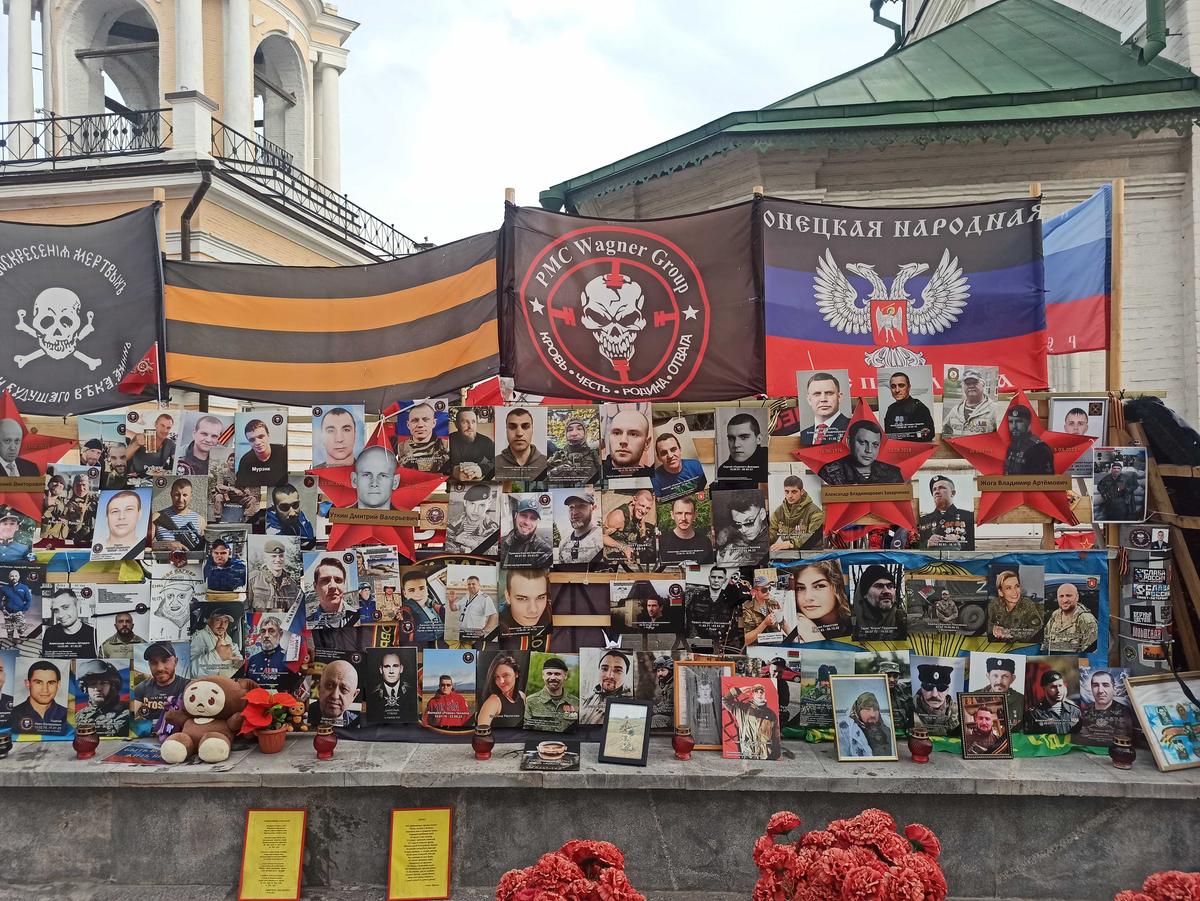
A memorial to Wagner fighters in central Moscow. Photo: Novaya Gazeta Europe
Russia’s notorious Wagner mercenary group recruited at least 48,366 convicted felons directly from prisons to fight in Ukraine in 2022 and 2023, a joint investigation carried out by BBC News Russian and independent media outlet Mediazona published on Monday has revealed.
In the summer of 2022, Wagner Group military recruiters, including the group’s co-founder Yevgeny Prigozhin, began visiting Russian penal colonies to offer incarcerated individuals early release from prison if they signed a six-month contract to fight for Wagner in Ukraine.
Based on internal documents that detail compensation paid to the families of deceased Wagner fighters, the group recruited 48,366 soldiers from penal colonies all over Russia. Following Wagner’s success in enlisting prisoners, the Russian Defence Ministry also began to recruit prisoners for military service.
A months-long conflict between Wagner and then-Defence Minister Sergey Shoigu peaked during the Battle of Bakhmut when Prigozhin publicly blamed the Defence Ministry for the enormous number of casualties. Shortly afterwards, Prigozhin led an ill-fated mutiny, the failure of which heralded the end of the group’s preeminence.
Wagner lost 19,500 soldiers in the battle of Bakhmut, 17,100 of whom were former prisoners. Those that survived the battle, and recruited soldiers fighting elsewhere in Ukraine, returned to Russia as free men.
Prigozhin was killed when his private jet crashed in August 2023, after which Wagner fighters were given the choice of leaving Russia or signing contracts with the Defence Ministry. While no longer a significant force in Ukraine, the Wagner Group still wields considerable influence in Africa, where various governments have hired Wagner mercenaries to shore up their power.
